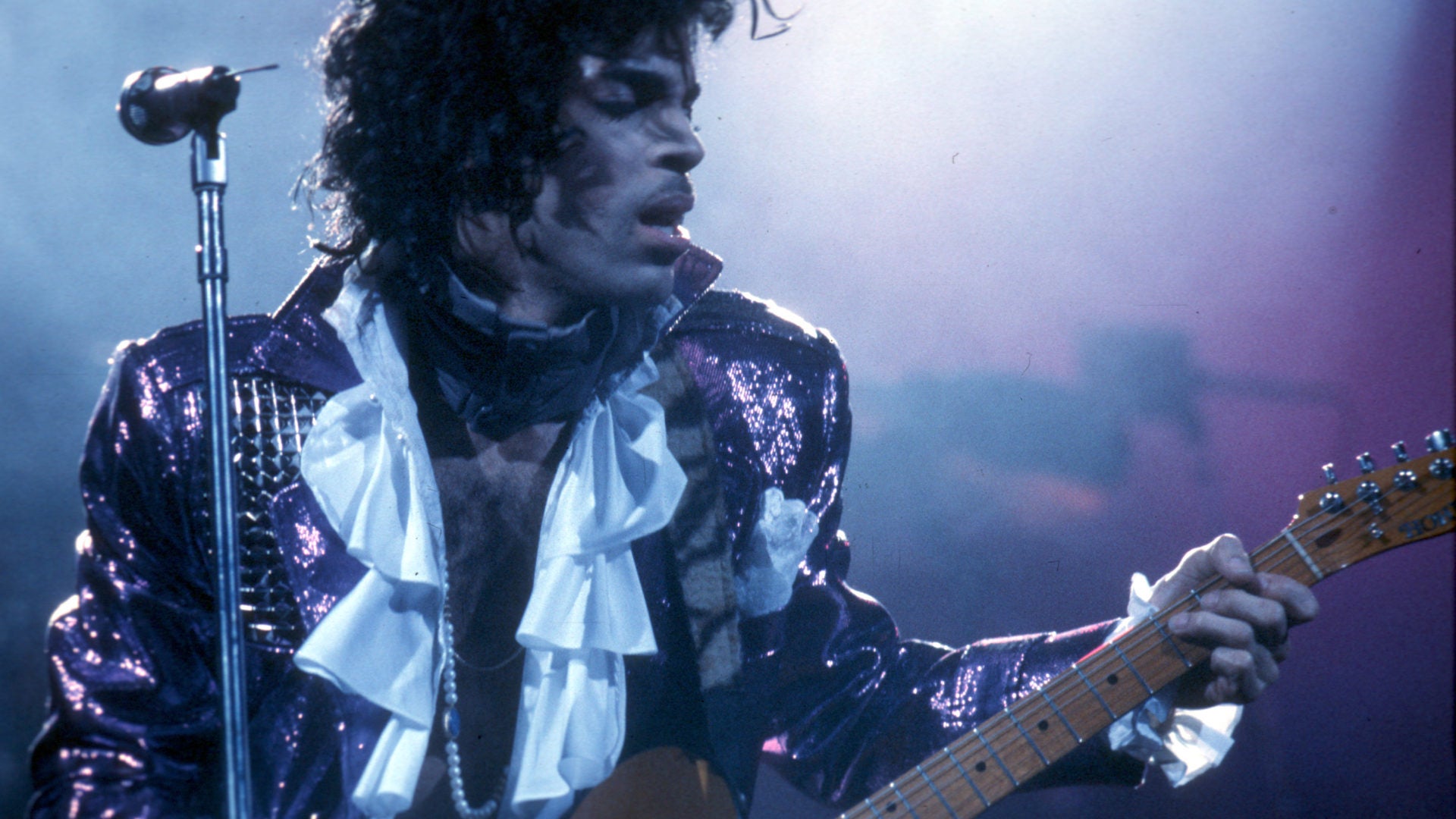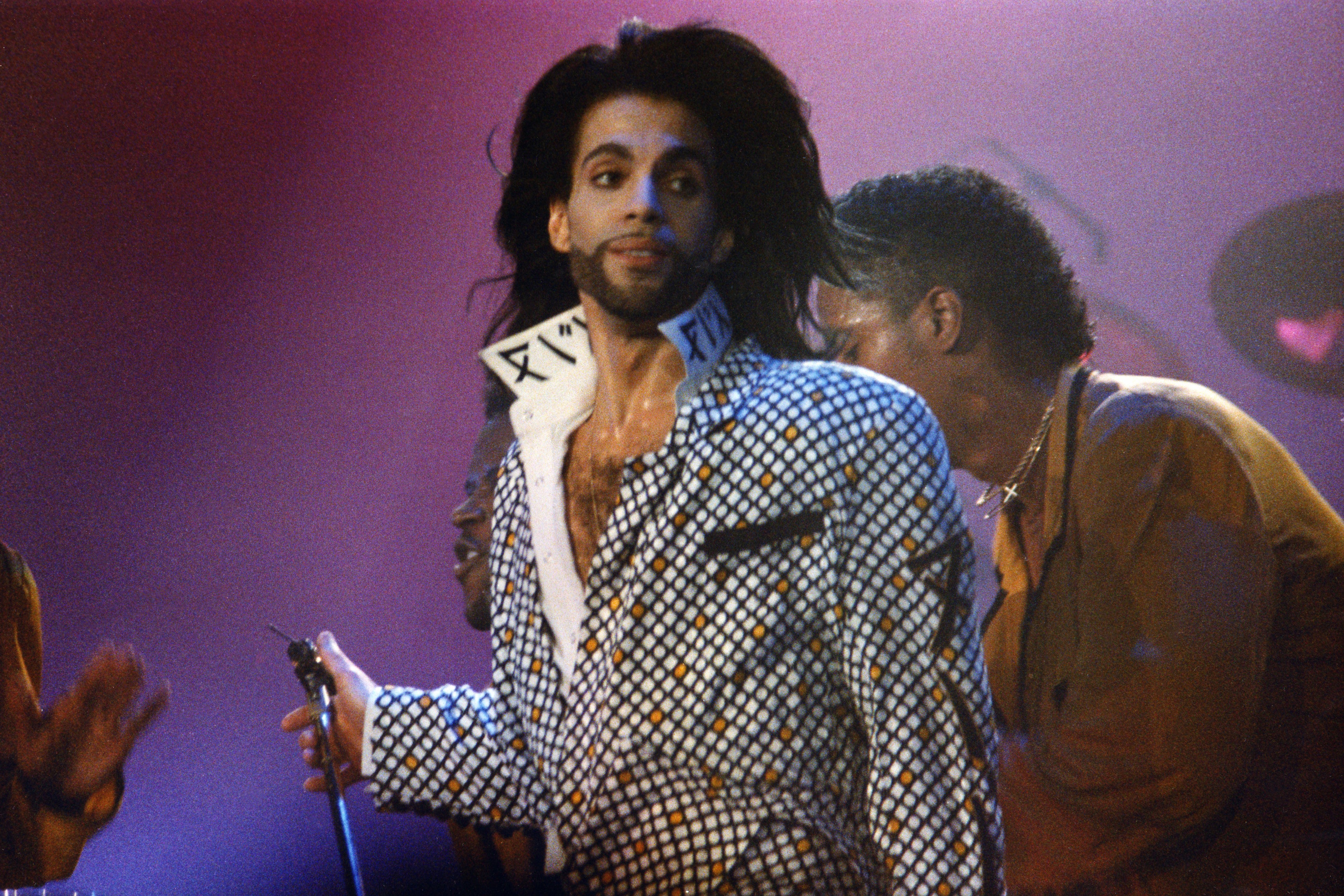
Purple Rain was Prince’s sixth album. By its release, he’d already done a little of everything, including a few things no one had done. He’d filled up dance floors with tracks like “I Wanna Be Your Lover,” pushed every sexual boundary he could think of between Dirty Mind and Controversy, and expanded what was possible with a drum machine on 1999.
And he did all that before he turned 25.
That’s career’s worth of music—he released more albums than Michael Jackson released between 1979 and 1995. But even with 1999, whose “Little Red Corvette” was Prince’s first No. 1 single, he didn’t have his Thriller. He had hits, but he had no blockbuster, no unavoidable staple like what Thriller had become to pop culture.
Then came Purple Rain, and Prince had everything he could dream of. His reps got him the movie deal he wanted. He had the freedom to record music wherever he wanted, whether in a fancy Los Angeles studio or in a Minneapolis warehouse. He had a band he could trust, crediting The Revolution for the first time and letting—gasp!—other people play instruments on six tracks (after doing so on five songs on five LPs). Everything was in place for Prince, this weirdo and musical freak of nature, to go from being a star to a legendary icon who would become a defining figure of his generation.
After “Purple Rain” raked in $80 million at the box office, and after the sound track sold more than 13 million units and produced four top 10 singles—two of which hit No. 1—it was clear that Prince was exactly who he claimed he was on the movie’s closing number, “Baby, I’m a Star.”
But now, 30 years after the Purple Rain sound track was released, the most interesting thing to look back on is the album’s ambitious music. This wasn’t some dumbed down, condensed version of his previous groundbreaking work, pared down and streamlined for mass consumption. And it wasn’t nearly as vulgar and explicit as the shocking songs that made his early albums impossible to ignore (“Darling Nikki,” even with its opening stanza, is a hymn compared with “Sister”).

He was a long way from only singing in falsetto and loudly talking about sex because he knew it made us uncomfortable. The flimsy references to nuclear war, which felt like contrived displays of political awareness, were discarded. He managed to find a most elusive artistic space, one where he matured rapidly while staying as daring as he ever was.
It takes serious ambition to start your star turn with a gospel dance record like “Let’s Go Crazy.” The references to heaven, hell and salvation—from the “de-elevator” to questioning the purpose of life—weren’t even thinly veiled. The song just jams so hard that you don’t have time to realize exactly what’s going on. And more Christian imagery would follow, from doves to the obvious tale of martyrdom on “I Would Die 4 U.”
Prince wasn’t making the obvious reaches for pop stardom that Jackson did with Thriller. He was redefining that very notion through the sheer force of his personality and his electric guitar. The guitar was Prince’s real costar. With a band to handle more of the load, sparing Prince from playing every instrument on every song, he unleashed the most blistering guitar work of his career.
Purple Rain is the peak of the Prince experience
There was the groove and incredible solo on “Let’s Go Crazy,” the passionately lyrical guitar that backs his impassioned pleas on “The Beautiful Ones,” and “Computer Blue,” a start-to-finish six-string clinic. The 20-second solo that starts “When Doves Cry” is so fast that ZZ Top’s Billy Gibbons (one of Jimi Hendrix’s favorites) wanted to meet Prince at the 2004 Rock ’N Roll Hall of Fame induction ceremonies to find out how the hell he played that. “When Doves Cry” famously has no bass, but the guitar is so insane that you forget that Prince didn’t pick it up for three more minutes. Then he killed it for another 50 seconds and let the thing cool down.
“Baby, I’m a Star” may have been Prince’s declaration of where he was, but “Purple Rain” was the proof behind that show. It wasn’t sonically or lyrically complex. It was the great soul ballad he always had in him that he had never shared. It wasn’t a panty dropper or a love song, but a visceral cry complete with Otis Redding–style screams and the most passionate guitar solo in his catalog. In almost nine minutes, Prince went from soul man to rock god.







Prince may have been better on Sign O the Times, his ninth studio album, but for his fans, Purple Rain is the peak of the Prince experience. That album was the man, his music and the world in lockstep, at a place where he could say or do whatever he wanted, and everyone could feel it. It seemed as though he could be everything for everyone without doing anything other than be his brilliant, demanding self.
And ultimately, that’s what Purple Rain is. Brilliant. Demanding. Everything.
This op-ed was originally published in 2014.






